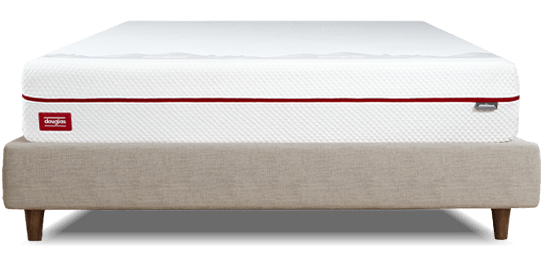Is 6 Hours of Sleep Enough?
Updated: January 21, 2026 | Published: August 15, 2025With busy schedules and never-ending to-do lists, you probably feel like you can use more sleep. And you’re not alone. Research shows that 6 hours of sleep isn’t enough. In fact, according to Statistics Canada, adults should be getting at least seven hours of sleep.
While some people can function on short periods of sleep, regularly missing out on the recommended 7 hours of sleep can negatively affect your physical and mental wellbeing. Read on as we explore how many hours of sleep adults need, what’s affecting your sleep, and tips on how to sleep better.
Is six hours of sleep enough?
While many adults can operate with six hours of sleep or less, for most adults, six hours of sleep is not enough. Keep reading to find out how much sleep you should be getting.
How many hours of sleep do I need?
Exact sleep needs vary from person to person and can change as you grow older. Other factors that can be taken into account are your lifestyle, health, and environment.
Here are the recommended hours of sleep for each age group according to The Canadian 24-Hour Movement Guidelines:
- Infants (less than 1 year): 12–17 hours, including naps
- Toddlers (1–2 years): 11–14 hours, including naps
- Preschool-age children (3–4 years): 10–13 hours, including naps
- School-age children (5–13 years): 9–11 hours
- Teenagers (14–17 years): 8–10 hours
- Adults (18+ years): 7+ hours
Why aren’t I getting enough sleep?
There could be multiple reasons why you’re not getting enough sleep, ranging from your daily responsibilities to physical stressors.
- Work/school schedules: Disruptions from work, school, commuting, or caregiving can interfere with your natural sleep-wake cycle. Sleeping at times that don’t align with your regular sleep-wake pattern can lead to insufficient or poor-quality sleep.
- Personal life: Balancing family time, social commitments, and hobbies that often happen at night can disrupt your typical nighttime routine.
- Poor sleep hygiene: Not investing in a comfortable sleep setup—like quality pillows, sheets, and a good mattress—and neglecting their proper care can significantly impact your sleep quality.
- Substances: Using substances like alcohol, drugs, and certain medications can disrupt your body’s natural sleep rhythms, making it tougher to fall asleep.
- Physical health: Discomfort from physically demanding jobs or lifestyles, injuries, chronic pain, hormonal changes, or medical conditions can all impact sleep quality. Medications used to treat these conditions (such as painkillers) can also affect your sleep-wake cycle.
- Mental health: Anxiety, depression, grief, and stress can all play a major role in the quality of your sleep. Worrying about not being able to fall asleep can make the problem even worse.
- Sleep disorders: Sleep disorders like insomnia, sleep apnea, or restless leg syndrome can cause interrupted and poor-quality sleep.
What happens if I don’t get enough sleep?
Not getting enough sleep consistently can increase the risk of various health issues. However, even one night without the proper sleep can impact your body the following day.
Drowsiness and cognitive impairment
Drowsiness from lack of sleep can profoundly affect your overall wellbeing. Feeling constantly fatigued, struggling to stay awake during meetings or classes, and needing naps throughout the day are all clear signs that your body isn’t getting the rest it needs. This sense of fatigue can disrupt your daily routine, causing frustration and irritability.
Lack of sleep doesn’t just make you feel groggy; it can also lead to cognitive impairment. When you don’t get enough rest, your brain struggles to function properly, affecting memory, concentration, and decision-making abilities. This can impact your performance at work or school, making even simple tasks more challenging. It can also make more complicated routine tasks, like driving and cooking, downright dangerous.
Physical health issues
Over time, insufficient sleep can lead to substantially increased risk of physical issues like:
- Cardiovascular disease
- High blood pressure
- Heart attack
- Heart disease
- Stroke
- Diabetes
- Hypertension
- Kidney disease and metabolic syndrome
Mental health issues
Research has shown that there’s a link between insufficient sleep and the increased risk of developing depression, anxiety, and other mental health issues. Not getting a good night’s rest can also cause mood swings and irritability, decreasing your ability to regulate your emotions.
How do I sleep better?
Getting a good night’s sleep isn’t always as easy as turning off the lights and closing your eyes. As we sleep, our body goes through different stages of REM (rapid eye movement) and non-REM. Ideally, your body should go through three to five cycles per night to ensure good-quality sleep.
To help improve your sleep, experts recommend the following:
- Try to go to bed at the same time every night.
- Follow a wind-down routine that helps you relax before trying to fall asleep.
- Cut down on screen time and avoid using your phone or other digital devices at least 30 minutes before bedtime.
- Exercise regularly.
- Avoid or limit your caffeine, alcohol, and intake of other substances before bed.
- Avoid naps in the evening or before you go to bed.
- Invest in a comfortable bedroom setup. Comfortable mattresses, such as our top rated mattresses, are a must for any bedroom setup.
Six hours of sleep isn’t enough for most people to function at their best. It’s crucial to prioritize your sleep health and take steps to improve your sleep environment and habits. If you have concerns about your sleep duration or quality, be sure to talk to your doctor to rule out any sleep disorders or underlying issues.


